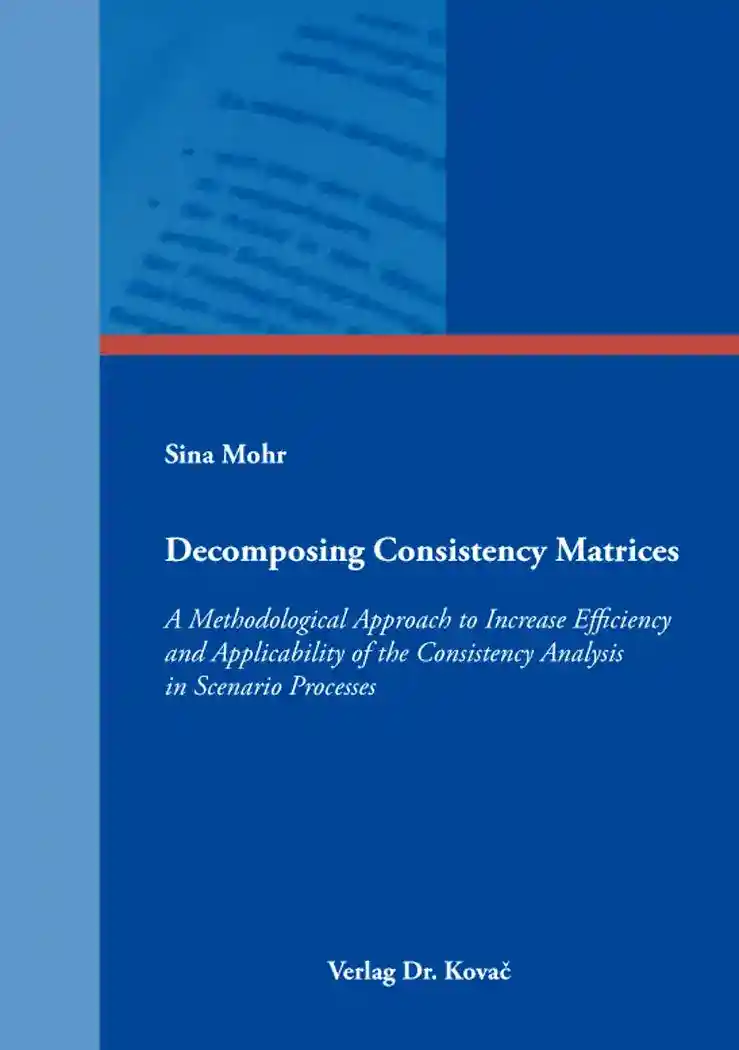Sina MohrDecomposing Consistency Matrices
A Methodological Approach to Increase Efficiency and Applicability of the Consistency Analysis in Scenario Processes
- in englischer Sprache -
Strategisches Management, volume 195
Hamburg 2016, 214 pages
ISBN 978-3-8300-9243-8 (print)
ISBN 978-3-339-09243-4 (eBook)
About this book deutschenglish
One of the most critical steps in scenario processes refers to the selection of consistent scenarios from the fully enumerated set of possible projection combinations. As this can usually not be solved manually in an efficient amount of time, analysts are well advised to rely on methodological instruments to reduce complexity in the selection process. Such an instrument is the consistency analysis. It is especially appreciated for its striking intuitivity and transparency. However, it also faces some critical shortcomings that affect its usefulness for managerial practice. Due to high evaluation efforts, it is typically very time- and resource-consuming. Moreover, the quality of the data highly depends on the quality of the experts involved. As real expertise is considered to be rather fragmented in complex environments, experts are likely to not have the respective competences to reliably judge on all issues considered in the consistency analysis.
To overcome these flaws, we propose decomposing the consistency matrix. Exploiting information from the impact analysis in earlier steps of the scenario process, we systematically subdivide the consistency matrix into smaller submatrices that can be evaluated separately. Those submatrices are designed in a way that each part is likely to address a different subset of reality and, therefore, may be specifically assigned to respective experts for evaluation. Moreover, we introduce a new approach to assess indirect impacts in the impact analysis more comprehensively. Applying both approaches in combination, the contributions of this new technique are threefold: 1. It leads to an extensive reduction in the overall evaluation efforts in the consistency analysis, 2. it considerably reduces the evaluation efforts per respondent and 3. it improves the reliability of the consistency data, as experts only need to judge on issues, they are specifically familiar with.
